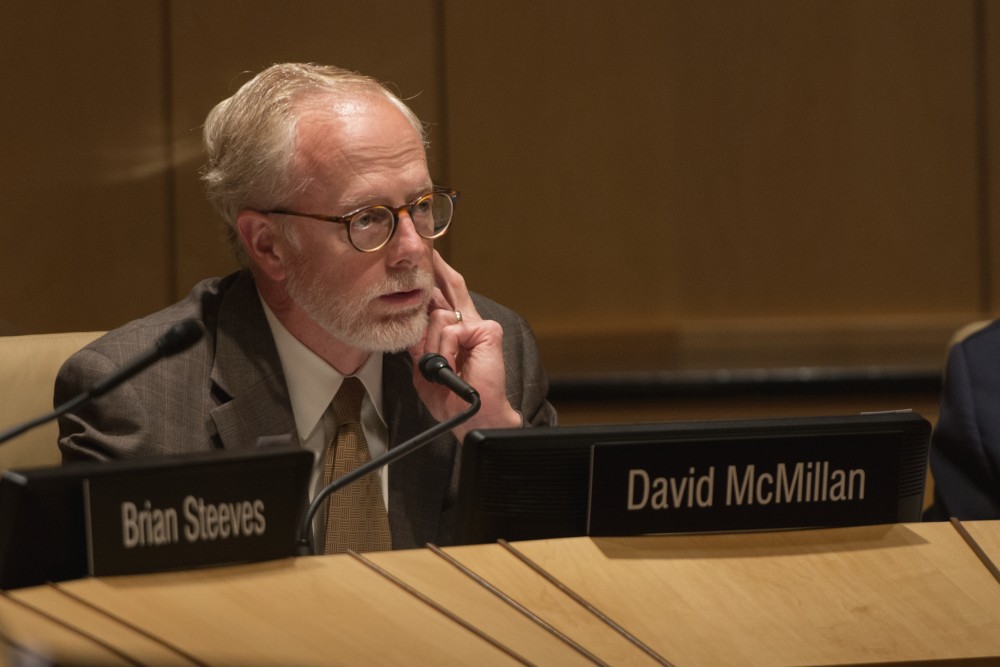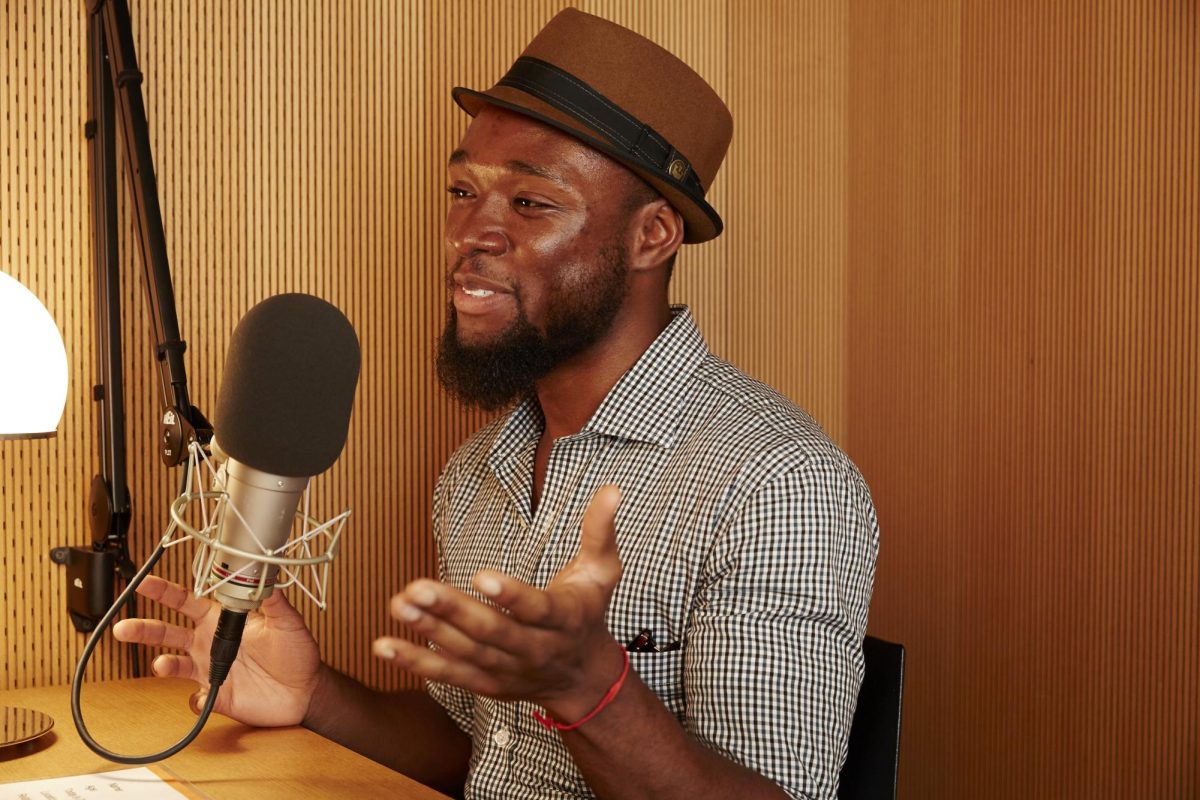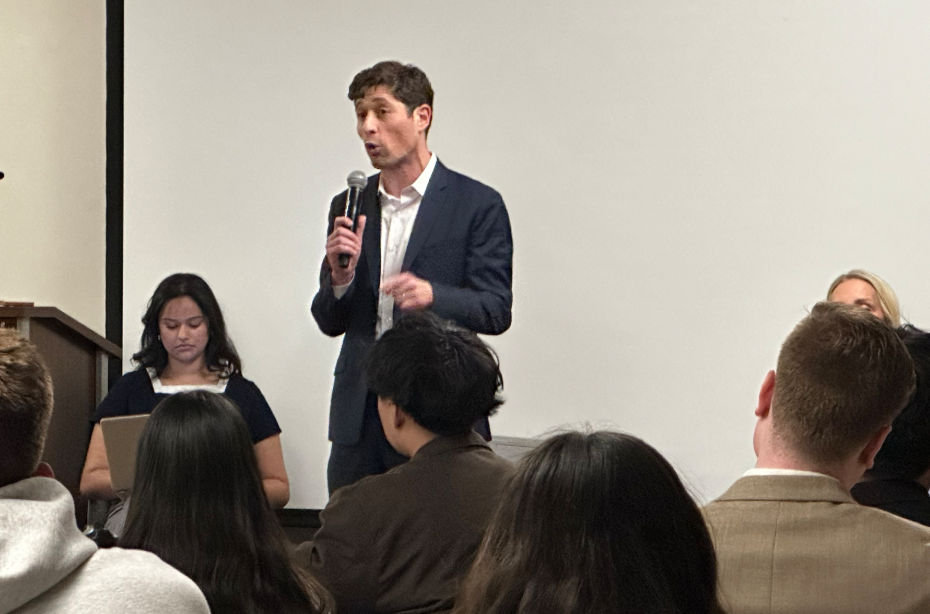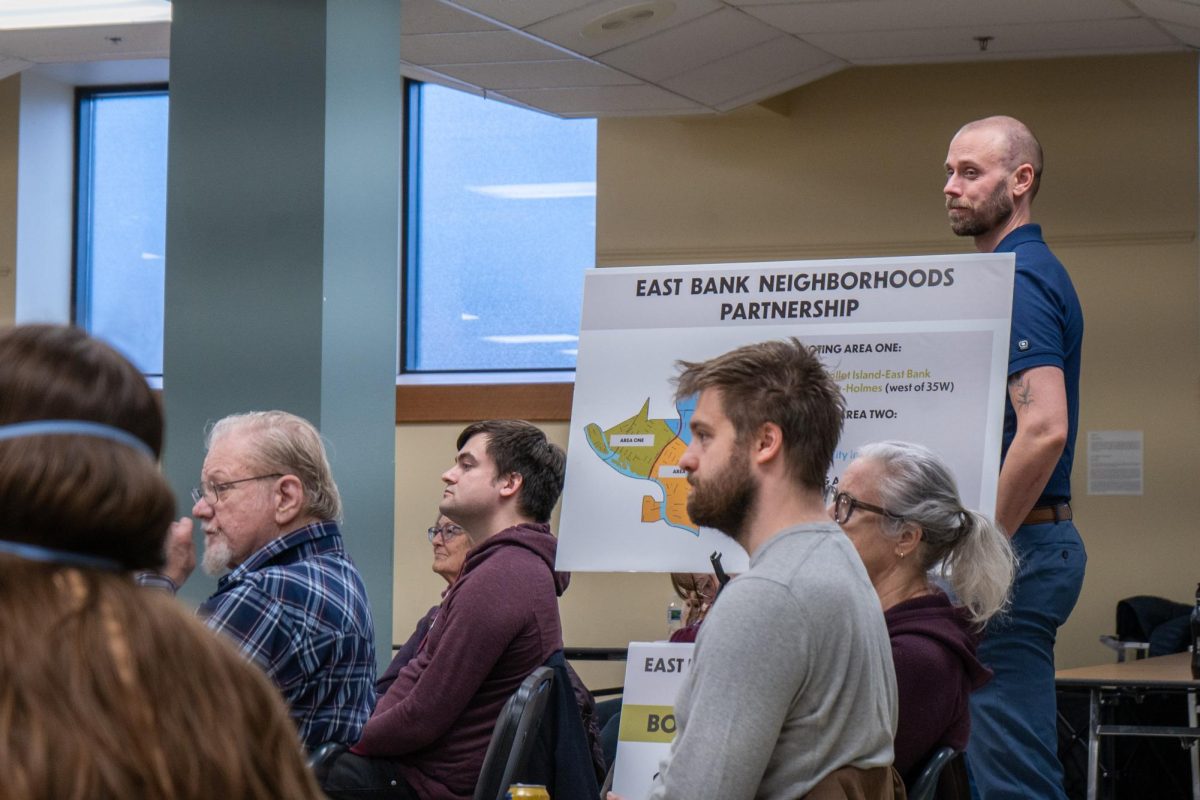Last week, the University of Minnesota Board of Regents approved the membership of the committee responsible for guiding the presidential search, which was met with criticism from faculty, students and community members.
The Presidential Search Advisory Committee will work closely with the independent search firm, Storbeck/Pimentel & Associates and the board in the search.
The committee, whose work is “deeply consequential,” will present three to four candidates to the board for further consideration later this fall, said Regent Chair David McMillan.
The committee is made up of 23 individuals, including two students. This drew criticism from system-wide student governance leaders, who along with seven of the eight student representatives to the board, wrote a letter condemning what they say is a lack of student representation.
The letter criticized a lack of diversity on the committee, addressing an absence of professional students and system campuses representation.
Students raise representation concerns
Student government leaders raised concerns following the release of the list of committee members in the board’s September meeting docket.
Catalina Anampa Castro, chair of the University’s Student Senate, and Harrison Frisk, vice president of the Council of Graduate Students, will serve on the advisory committee. Both are from the Twin Cities campus.
Alanna Pawlowski, president of the Professional Student Government, said she was disappointed to see the committee only included two students and no professional students on the committee. PSG represents around 11,000 students system-wide.
“We are a large portion of students who may be affected by and work with the administration in slightly different ways than undergraduate and graduate students,” Pawlowski said.
The board also received criticism from some about what they say is a lack of system campus representation.
Mike Kenyanya, University of Minnesota Duluth’s student body president, said the experience of Twin Cities students and students who attend system campuses is “inherently different.”
“In terms of representing this system campus and the other system campuses, [the two students on the committee ] can’t represent a Duluth student in the same way that I can’t represent Carlson[School of Management] students,” he said.
Benjamin Koisti, University of Minnesota Crookston student body president, echoed Kenyanya’s sentiment.
“Student voice is important because we’re on the ground level and everything we see through our eyes is … different than administration,” he said. “Certain policies affect us directly.”
All of the presidents said they have faith that Anampa and Frisk will represent the student voice well. However, they fear that two students will not be heard because of the large number of executives and faculty on the committee.
Regents’ response
The regents received nearly 400 nominations for committee membership, McMillan said.
In response to criticism, McMillan announced on Friday that Mark Sheffert, a University graduate and founder and CEO of Manchester Companies, was added to the list of committee members. Sheffert addressed the need for more executive management expertise, McMillan said.
Joseph Konstan, chair of the University’s Faculty Consultative Committee, said faculty want a president who will support the needs of faculty and students. He added that the faculty is supportive of the committee and looks forward to working with the board to make this search successful.
“Like everyone else, I can quibble about the composition, I can give you a list of how the committee would be better … but I can say that everyone I’ve spoken with is very happy with the qualifications of the individuals who are serving,” he said.
Regents Peggy Lucas, Abdul Omari and Steve Sviggum will also serve on the committee, with Omari as committee leader.
Lucas said while she would appreciate more student representation, a larger committee isn’t feasible.
“I would love to have more students but I don’t want a 30-person committee,” she said.
Next steps
The board will hold seven listening sessions for faculty, staff, students, alumni and community members this month. Three of the sessions will be on the Twin Cities campus.
Jael Kerandi, MSA’s representative to the board, said students should attend these sessions to voice concerns about the lack of student representation on the committee.
“We were very disappointed by the lack of action after the letter … we really wanted to ensure diversity,” Kerandi said.
If students are unable to attend the listening sessions, Kerandi encouraged students to talk to MSA members and other student body governments to advocate for what they’re looking for in the next University president.
Despite the criticism, McMillan and the board stood by their decision and unanimously voted to approve the committee membership and charge at Friday’s meeting.
“As we assembled the committee, we considered how to best represent students across the system … we’re confident that they together will be very effective in bringing broad student perspective to this process,” McMillan said.








